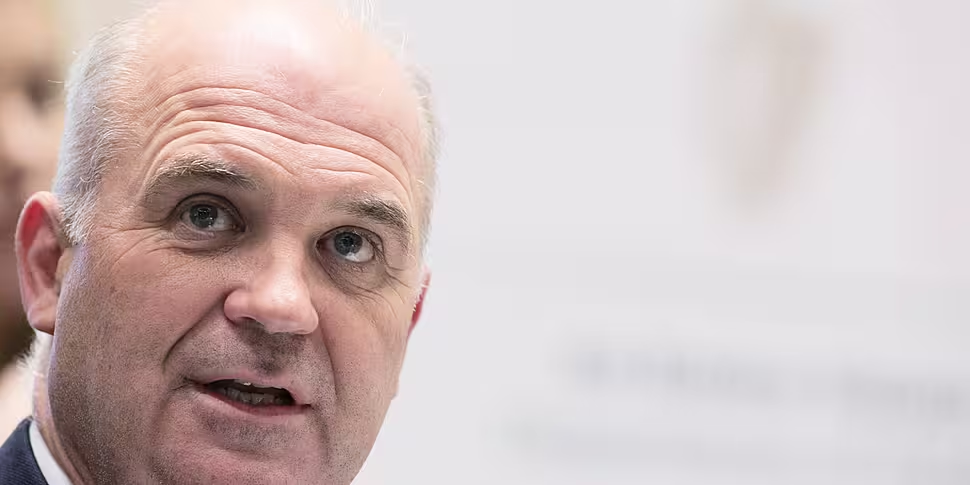There will be a 'very sharp' increase in the number of COVID-19 deaths in January, the Chief Medical Officer Dr Tony Holohan has warned.
He says the increase hasn't been seen yet as it's going to 'lag' behind the surge in new cases and hospitalisations, but will be a 'significant multiple' of what we saw in November and December.
However, he says there are 'early signs of encouragement' that people are beginning to reduce their numbers of contacts - and there is an opportunity to turn the current situation around.
6,110 new confirmed cases of coronavirus were reported yesterday evening - by far the highest rate seen during the pandemic so far.
Dr Holohan told The Pat Kenny Show that the high numbers in recent days have been a consequence of fewer people getting tested over Christmas.
He said: “Over the Christmas period… we can see very few people in relative terms came forward and were tested… then that extra burden came forward for testing in the subsequent days, and we can see that in the data.
“Yesterday’s number of 6,100 would include some... that are slightly older cases."
He said he's "sorry to say" mortality numbers will rise soon, telling Pat: "In January we’ll see a significant multiple in the number of deaths from both November and December. We just haven’t seen it yet because it’s going to lag."
However, he said the number of close contacts has been steadily reducing - suggesting that people are starting to change their behaviour to help drive down rates of the virus.
The focus of the debate in recent days very much on schools, with expectations growing that they will not reopen next Monday.
Senior ministers are meeting with health officials today to discuss the situation.
Ahead of that meeting, Dr Holohan said: “We certainly never said that kids don’t get this infection - they do get it, they don’t get it to the same extent as the rest of the population.
“The work that has been done across schools… to maintain the school environment as a safe place… we can see that in the data.
“We’re now in a situation, and we have expressed concerns about this… these levels of infections in children of school-going age have increased very significantly, even if they are less than the average rate in the population."
Latest figures show the incidence rate is 284 per 100,000 among teenagers, and 142 per 100,000 among 5 to 12 year olds.
'We've never faced this level of infection'
The CMO said everyone should be acting to drive down the rate of the virus here, whether that's self-isolating if you're a confirmed case or avoiding social contact wherever possible.
He said: “If you have cold or flu like symptoms, you might as well regard that as COVID - we know there isn’t any flu in effect in this population at the moment, or other common respiratory viruses.
"We need to act like it's March again. We would express some optimism that if we get that message across… and begin to get these measures [in place], we might see a significant decrease happening quite quickly in this infection."
With close contacts currently not being tested, Dr Holohan said the priority currently has to be on testing those who are symptomatic.
He also explained the advice remains for people to not travel for anything other than essential reasons - but noted we can't directly compared Ireland with some other countries.
He noted that New Zealand and Australia are “on the other side of the world, and have never experienced the surge of infection that western Europe and North America have”.
Ireland, in contrast, is a small open economy with close relationships with the rest of the European Union.
He said: “Ireland is not an isolated country like New Zealand, more than 1,000 miles away from the next country. They’ve been able to put in place measures in ports there, and haven’t been impacted by infections to quite the same extent as the northern hemisphere.
“We’ve never faced this level of infection. The risk to people in this country now is not from international travel, it’s from other people in this country."
Meanwhile, Dr Holohan said NPHET doesn't recommend commercially-available antigen tests as they can provide people with 'false security' - noting the PCR test remains the gold standard.
However, he said the antigen tests do appear to have a role in outbreak settings, so officials are looking at whether they could be used to increase testing capacity in those situations.









